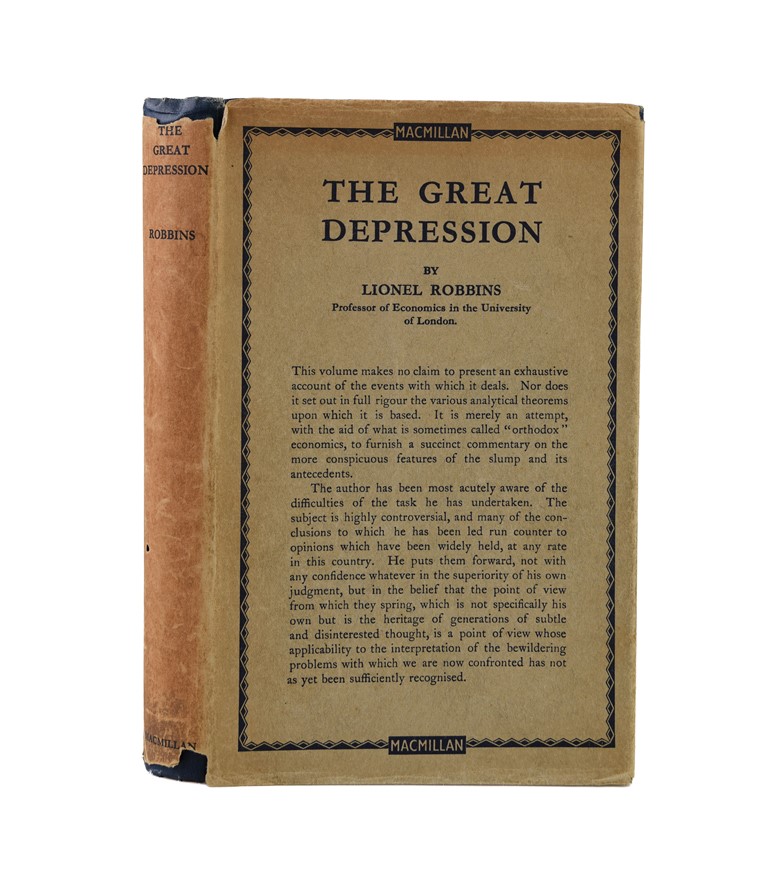The Great Depression.
ROBBINS Lionel (1934.)
£450.00 [First Edition]
Please contact us in advance if you would like to view this book at our Curzon Street shop.
First edition. 8vo. xiv, 238, [2] pp. Original blue cloth, spine lettered in gilt, dust jacket (neat contemporary ownership inscription of 'J.R. Hunter' to front free endpaper, a few isolated instances of pencilled underling and marginal highlighting, otherwise generally internally clean; cloth with some minor wear to tips of spine and corners, jacket rather edge worn, spine panel heavily toned with loss to head and tail, long closed tear to foot of rear joint, still a good example of the scarce jacket). London, MacMillan & Co., Ltd.
A classic exposition of the Austrian theory of the trade cycle and the peak of Lionel Robbins' anti-Keynesian phase. 'In macroeconomics Robbins was a firm exponent of the Austrian theory of the trade cycle and here he was greatly influenced by Frederick von Hayek, whom he brought to LSE from Vienna in 1928. The central feature of the Austrian analysis was that depression was due primarily to under-saving (or excess consumption) and these views, which Robbins expounded as an explanation of the 1930s depression in his book The Great Depression, led to a head-on collision between the senior LSE economists and the Cambridge School centred around Keynes. This rift was not finally healed until the wartime collaboration in Whitehall between Robbins and Keynes. After the war in the Marshall Lectures for 1946, published as The Economic Problem in Peace and War, Robbins announced his conversion to full employment policies via control of aggregate demand, although it is not clear that he became a Keynesian' (New Palgrave).
Stock Code: 252640




